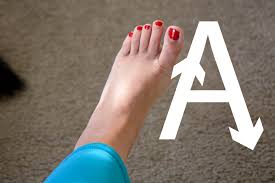Have you been thinking about your child's midline crossing troubles? Have you noticed any problems with bilateral skills in your child? Then definitely some of our questions must been storming your mind? So we continue to place the pieces of puzzle and here we are with more answers.....
What other problems can occur when a child has
crossing the body’s mid-line difficulties?
• The child may avoid Pencil based activities and Reading
•The child
may become angry or frustrated when engaging in fine motor activities.
•difficulty in performing self-care
tasks independently (age influenced).
•difficulty in coordinating both
sides of the body.
What can be done to improve the ability to
cross the body’s mid-line?
•Bilateral
integration skills (using both sides of the body at the same time).
•Core stability and trunk rotation to encourage the physical movement of crossing the body’s mid-line.
•Hand dominance: The consistent use of one hand or foot most often that allows refine movement control to develop.
•Planning and sequencing: The ability to follow multi-step instructions to achieve a defined outcome or end point.
•Body awareness: The information that muscles and joints send to our brain that tells us about our body position
•Daily Life Skills: Incorporate some mid-line crossing activities into your daily life skills (eg set up socks and shoes for dressing on the wrong side of the body when the child is sitting so they are forced to cross the body’s mid-line to dress.
Activities to help develop the ability to cross the midline:
•Core stability and trunk rotation to encourage the physical movement of crossing the body’s mid-line.
•Hand dominance: The consistent use of one hand or foot most often that allows refine movement control to develop.
•Planning and sequencing: The ability to follow multi-step instructions to achieve a defined outcome or end point.
•Body awareness: The information that muscles and joints send to our brain that tells us about our body position
•Daily Life Skills: Incorporate some mid-line crossing activities into your daily life skills (eg set up socks and shoes for dressing on the wrong side of the body when the child is sitting so they are forced to cross the body’s mid-line to dress.
Activities to help develop the ability to cross the midline:
Pop bubbles with only one hand (they will have to reach across their body to pop the bubbles floating on the opposite side).
Reach for bean bags, balls, stuffed animals, or other objects across midline, then throwing at a target.
Draw large figure eights (the infinity sign or an 8 turned on its side) on paper, on the floor with a finger, in the air with a finger, or drive a matchbox car around a figure eight pattern.
Let the child play with sand, scooping sand from one side of the body and putting it into a bucket on the opposite side of the body without switching hands.
 Let the child pretend to drive a car with a ball in his/her hands to use as
a steering wheel and encourage the crossing of his/her arms as he/she turns the
‘steering wheel’
Let the child pretend to drive a car with a ball in his/her hands to use as
a steering wheel and encourage the crossing of his/her arms as he/she turns the
‘steering wheel’
Knee slap walk-
Walk around raising each knee while touching/slapping it with the opposite hand
(or elbow). Change it to a skip while touch.

 Windmill-stand
with feet spread apart and arms extended out to the sides. Bend over at waist
and tap right hand to left foot. Stand back up and then bend and tap left hand
to right foot.
Windmill-stand
with feet spread apart and arms extended out to the sides. Bend over at waist
and tap right hand to left foot. Stand back up and then bend and tap left hand
to right foot.

 Windmill-stand
with feet spread apart and arms extended out to the sides. Bend over at waist
and tap right hand to left foot. Stand back up and then bend and tap left hand
to right foot.
Windmill-stand
with feet spread apart and arms extended out to the sides. Bend over at waist
and tap right hand to left foot. Stand back up and then bend and tap left hand
to right foot.What activities can help improve crossing the body’s mid-line?

Finger Puppets: Placing finger puppets on one hand and encouraging the child to remove the puppets with the opposite hand.

Blocks and Percussion: Getting the child to bang blocks or percussion instruments together in their mid-line.

Streamers: Getting the child to make streamers or ribbon circles and patterns in front of their mid-line (use two hands together or one in each hand).

Stickers: Placing stickers on one arm and encouraging the child to remove them with the opposite hand.
Why do we need therapy if child feels difficulties in crossing the body’s mid-line?
Therapeutic
intervention to help a child with crossing mid-line difficulties is important
to:
•Help a child develop
hand dominance.
•Help prepare a child
for pencil skill and
fine motor tasks in school
•Help a child to
complete age appropriate self care tasks (e.g. dressing).
•Help a child improve
their gross motor skills such as kicking, hitting balls and running.
•Help improve the
ability to visually track effectively across a page so that literacy skills
develop easily (e.g. so that reading is fluent).
Please follow our blog and feel free contact us and our website www.healthymomshome.com
Play based therapy for kids with midline crossing disorders and all types of rehabilitation services are available at all outlets and portals of Healthy Mom
Contact details: whatsapp number: 9755700579,9453443603(no calls accepted, only whatsapp messaging )
Contact details: whatsapp number: 9755700579,9453443603(no calls accepted, only whatsapp messaging )
Email: nootan.nayana724@gmail.com
geet.tyagi7@gmail.com
Website: www.healthymomshome.com


















No comments:
Post a Comment